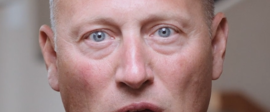Create Good: Beauty in the Breaking
Blog / Produced by The High Calling
We roll our bags down the entry hallway of Children’s Hospital, past a colorful abstract butterfly mural. We’re here for a scheduled overnight—no rushed admission, no immediate accident or illness, no heart-thumping clutch of fear. We deal in the long and slow, in measured stretches of medication carefully calibrated—dripped in by IV monthly, spooned in by dropper-full twice daily, cut in half and swallowed in applesauce Monday through Thursday, and injected on Friday.
Illness
We're not the family in the waiting room rocking a wailing baby, pacing, talking on the phone in tears. We're not the stoic mom holding the tiny four-year-old boy with half a shaved head.
We're the ones with the kid who looks just fine. Julianne sits in the waiting room with headphones on, reading her book serenely. While stress ebbs and flows around her, she appears untouched.
We're the ones with the girl who's proud she can pronounce the ten-syllable mouthful Ju-ven-ile Der-ma-to-my-o-si-tis (JDM) correctly when she's first diagnosed two years ago at 7 1/2. We're the ones with the statistical anomaly: one of only two to three kids per million get JDM, an inflammatory disease of the skin, muscle, and blood vessels. (And we wonder why we can't beat these odds when it comes time for school raffles or radio-show call-ins or even a lotto ticket.)
We're the ones who slather sunscreen on our kid like her life depends on it (because it kind of does). We're the ones who take frequent breaks on family outings when Julianne gets tired (which can be a lot) or deal with meltdowns because she's emotional (you take 15 mg of steroids daily and see how stable you feel).
We're the ones feeling the long, slow burn of a chronic disease that can be so subtle sometimes close friends and family even forget it. We're the ones people cheerfully tell they've heard kids outgrow this, even though we know there are no guarantees and no cures (though we hope and pray for remission).
We're the ones who persist in claiming good but often feel weary.
Antidote
It might be easy to feel sorry for ourselves (and sometimes we do). But on good days, we fling aside the dark, choking vines of worry, and the light shines in. We've found four potent antidotes to sorrow and self-pity, four ways to create good in the midst of a difficult situation:
Gratitude
When we come back from our first hospital overnight in a year following a relapse, our gratitude journals fairly bulge. We had forgotten how much we had to be thankful for: funny nurses, our kind doctor, a good vein for the IV infusions, friends bringing over meals.
Love
We find a special love letter in Romans 5:3-5. I scrawl in my journal, suffering = perseverance = character = hope. And we talk it through, Jules and I. So things are hard now, right? That's the suffering part. But if we persevere—that means be strong, keep going—that builds our character, makes us better people. And once we've become better, stronger, more mature, we're ready for hope.
Authenticity
I write a 2,000-word blog post proclaiming our rheumatologist an artist and a hero. Then I print it and mail it off to him so he knows how grateful we are. I pitch and write a story for Pitt Med Magazine about our experiences—because shouldn't every physician hear the patient’s side? How kindness and concern, gentleness and whimsy matter?
I learn that talking about our struggles honestly and authentically won't kill me. In fact, it's saving me.
Connection
I begin to savor relationships and seek out personal connection, eager to soak up love and support, to grasp joy and meaning. I initiate a correspondence with another mom whose daughter suffers from chronic health issues. Our girls exchange letters, cards, and little gifts. I take a long walk with a mom from Julianne's preschool days, and we share our hearts. Her son suffers from a rare form of epilepsy, which doesn't respond to medication.
I also begin taking both my worship and my worries to the trail, running long, hard miles. I begin biking for speed and kayaking at our local lake. I see sunsets over water, egrets dipping low, fish erupting in deep-green ripples. I smell summer’s scents more intensely as I dodge roots and rocks on a dim trail. I am strong and agile. I feel more alive than I have in years.
It's almost as if, in throwing wide the door to my heart, in owning and sharing its pain, I have also opened myself to joy.
One night this past spring as I cried out in prayer, struggling with an unkind relapse, I felt a twinge inside. I sensed a sweet promise straight to the marrow of me: There’s beauty in this breaking. And somehow I knew that if I let God rebuild, I could become more whole than I have ever been. Because the one who created order out of chaos, who spoke the world into being—when I offer up the tattered bits of my life before this God, he will call it good.
_____________________________
Create Good
It takes work to create good. It takes time and energy and resources and, well, work. Somewhere along the way, you might feel discouraged or worn out or frustrated by the whole thing, so we've asked a few people in The High Calling network to talk to us about creating and cultivating good things. We hope this series, Create Good, inspires you to keep looking up, pressing on, and doing good. We pray you find the inspiration to "not grow weary in doing good." God sees your work. God knows your desire to do good, to create good, to celebrate and cultivate good in the world. God is for you. And so are we.
Featured image by Elizabeth Anne May. Used with permission.











